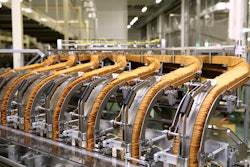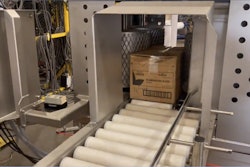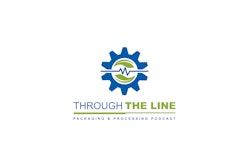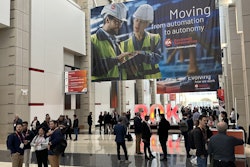Derrick Teal: Welcome to the ProFood World Video Interview Series. I’m Editor in Chief Derrick Teal. This series explores the latest and greatest in food manufacturing by talking to industry leaders to know the ins and outs of what’s important, and what you need to know now for your operations. Whether you’re here for some fresh insights or just curious of what’s important for your operations, you’re in the right place. This episode is hosted by Bryan Griffen of Griffen Executive Solutions. Let’s jump in.
Bryan Griffen: Welcome to another episode of the ProFood World Interview Series. I'm Bryan Griffen, and after 30 years of leading engineering and automation in the food and beverage industry, including global roles at Nestlé, I've seen firsthand how hard it is to keep lines running when your people pipeline runs dry.
So, today's mission is filling the resource gap. Our guest and I will explore why the gap is growing, what manufacturers can do to close the gap, and how to build a workforce that's ready for the future. And since no mission is complete without a little intrigue, we're calling this episode Mission Possible, The Manufacturing Talent.
So, grab your coat, and of course your fedora, and let's go. So, joining me on the mission today is Lisa Rathburn from the Marzetti Company. Lisa has 23 years’ experience in manufacturing with the expertise in engineering, quality assurance, manufacturing, operations, and operational excellence. At Marzetti, she's held the role of vice president of engineering and is currently the vice president of operations.
Prior to Marzetti, Lisa worked for Eli Lilly and Company and Abbott. So, Lisa, thanks for joining us.
Lisa Rathburn: Happy to join you on this mission, Bryan.
Bryan Griffen: So, let's start with the mission briefing. Every mission needs to know where it's going, so, let's figure out what our mission is today. We've talked before about the shortage of talent in the workforce, the talent gap that's growing, and I guess our mission for today is to figure out what's causing this shortage in qualified talent and why does it feel like the target keeps moving?
Lisa Rathburn: Yeah, Bryan, it's not an easy problem and we call it a talent shortage, but the gap isn't just about not having enough people. It's about not having people with the right skills as things within manufacturing are changing.
We have a significant amount of workforce qualifying for retirement. We do have fewer people that are interested in coming and joining the manufacturing industry. But it's also that technology advancement that's requiring new capabilities for us within the plants every few years. We need more training and more skills.
I'm in food and beverage, and that challenge could sometimes even be even tougher. We need people that don't just understand production and manufacturing, but there is a heavy side around compliance and changing regulations. We need people that can troubleshoot on the fly and people that are comfortable using all the new digital tools that are being provided out there by our suppliers.
It's a tall order and we need staff accordingly to be successful.
Bryan Griffen: That is a tall order. There's definitely a generation gap; I notice it with my own kids and myself, in the familiarity with some of these new tools. So, I can see that. So, when it comes to recruiting though, for these new people coming in it's not good enough to just throw job descriptions out there or ads and hope they stick. We gotta be running some sort of an undercover op to help us do better at getting people to come in. So, what are some of the best strategies that you've seen for attracting that next generation of talent?
Lisa Rathburn: Yeah, I think you hit it on the head, Bryan. We in manufacturing need to crossover and be better at marketing, right? Marketing ourselves a little bit better. What I've seen is that people that I'm interviewing or talking to on a regular basis, they want to work for a company that has a purpose, that there's value that they can bring to their communities or the world around them.
They also want to see use of technology. They want to work for a place that is advancing with the technology, and they want to see a career path in front of them so that once they come in into a certain role, that there's development for them to get better and try new things within that company.
So as a result, what I see more and more on platforms like LinkedIn or other social medias is that companies are starting to market their innovation. They market their community involvement and impact. They try to represent their culture out there so that people that are applying for these roles understand what they're walking into in that company. And those are the things that matter most to the workforce.
Another strategy is reaching out and getting younger awareness into manufacturing. So, it's still in that marketing vein, but building relationships with schools. And not just technical colleges, but high schools and maybe even middle schools. One company that I worked with in the past sponsored robotics teams. We've also, at Marzetti, offered job shadowing and internships for high school students.
So, it's getting younger and younger, to get them exposed to what it's like in manufacturing. Those interns that participate when they're young are then the ones that want to come back in college and show up again, and they show up already engaged.
Bryan Griffen: Yeah, I like that. And I think both of those are dead on.
More and more, we're seeing this concept of having a purpose in what you do. It's not just coming to work for eight hours a day and getting a paycheck. It's this, “What am I doing for the world that I live in, and why am I here? What’s the value of what I'm doing?” So, I think that's critical.
I have a funny story that popped into my head when you were talking about technology. I lived in Switzerland for a number of years, and I remember being in a store once. It was a kind of an electronics, sort of a Best Buy shop. And there were two little kids there. One was probably eight or nine, and the other was maybe three or four, and the iPad had just barely come out. And the older kid is sitting there playing a game on the demo iPad that's in the shop, and his little brother says, “I want to turn.” And he says, go get dad's iPhone. The little one says, “iPhones are stupid. I want an iPad.” So, it's just this whole concept of this generation gets technology and wants the latest and greatest technology is definitely a shift in, in how we see things from previous generations.
Lisa Rathburn: Absolutely.
Bryan Griffen: So, every agent though, that we bring in these operators and employees, as a secret agent, they have to pass the agency's training course, whatever that looks like for their agency. So how do we build those skills that we need for our companies inside the factory? Especially when it feels like everyone's already running on full speed. There's not a lot of time to take off and go do trainings. So how do we deal with that?
Lisa Rathburn: Right, so Bryan, we have 14 facilities, and the plants that are not treating training as an extra task, as something extra they have to go do, the ones that are making it part of the way they work—those are the ones that having the most success and the most progress.
There are just some basic fundamentals where you have to be clear on what the training expectations are through developing a skills matrix or a qualification card. Whatever any individual company wants to call it. And make sure that those opportunities for training are outlined and identified.
The other way of doing this is also through rotation, job rotation. So, you build a lot of both depth as you take training courses, but maybe not a lot of breadth, and people like to feel like they're continuing to be developed. And so, rotations allow for breadth of knowledge as people rotate through different jobs.
There's also, going back to that technology example, right? People love the technology and the way that we present the training is starting to change. So, I have two young sons that like YouTube shorts. And so, bite-sized training videos work for adults too. Yeah. Mobile learning, using iPads so that it's there and available at the place where the work is happening.
And we haven't implemented this, but I've seen it at trade shows: augmented reality for hands-on practice. We can't train on the rail systems, so being able to do it in simulation. The whole concept of, we talked about an iPad game, gamification, where there's points or badges or rewards or levels, that there's a feeling of achievement when certain metrics are met.
It really does boost engagement, and it really resonates with people that like technology.
Bryan Griffen: Yeah, I'm sure it does. We're all kids at heart, right? I mean, look at me, I'm wearing a silly fedora and a jacket just because it's fun. So yeah, this idea of gamification of training, I like that because everybody's going to want to take a chance at getting the high score or adding some points or whatever it is. So that's a brilliant idea.
So, now we've recruited our agent. We are, we're training them for the mission. They're getting everything that we need. They're ready to go. How do we keep them from defecting?
Lisa Rathburn: That's a great question. Retention, we measure also based on how long someone's worked with us and what the turnover rates, depending on how long ago they started.
And retention, we see, starts with day one. If orientation is rushed, confusing, or the training is just not robust enough and they're just thrown out onto the manufacturing floor, there's a high likelihood that even though you invested in the training and you invested in the recruiting, they might leave.
A key focus on onboarding is very important. I think the culture plays a huge role too when people enter the company. As progress is made, training skills, et cetera, that there's recognition, that there's ongoing coaching, and that those wins are celebrated, where possible. And sometimes it's hard in manufacturing, flexibility of schedule matters more now than it used to.
There's mental wellness, mental health programs, and opportunities for roundtable discussions, right? Ability for the employees, if they're new and they're coming from outside, they may have experienced something different somewhere else. So having listening sessions, getting their input and concerns and being heard helps drive that retention as well.
I think also in manufacturing, people tend to get promoted as they do their job well, they get promoted. And we need to make sure that we're investing in those leaders as people leaders, not just good managers of production. And so, turnover can start when you have a leader that isn't the best, right?
People will leave a bad boss, it’s maybe not the job. So, we’ve got to make sure that we're investing in leadership skills as we promote leaders of people.
Bryan Griffen: Absolutely. I couldn't agree more. I have seen so many times people that were great at what they did and got promoted to the point that they no longer enjoyed what they were doing and weren't really very good at it. Because they didn't get the training. It wasn't because they lacked skills. It was because we had that idea of, “Hey, you're really good at operating this machine. Let's make you the shift supervisor.” Okay, but I don't even know what that is… So yeah, it's that's a really good point, is that being able to start on day one with a good onboarding program and then keep it going throughout the life of the employee.
So, do you have any examples that you can share with us of where this has worked well, where you've recruited well, you've trained them up, you've brought them in, you've kept them, and somebody has grown to succeed where maybe they didn't think they could originally?
Lisa Rathburn: Yeah, so I, I mentioned onboarding, and its importance. We as a company have decided to really try to invest in our workforce and in this area very intentionally. And so, we started a program, and we call it Accelerated Onboarding. But ultimately it was to transform the organization so that the employees feel more empowered and capable of doing their jobs, so that we have better performance and the things that we're talking about, job satisfaction and just personal fulfillment.
So, that standardized training program and accelerated onboarding process has reaped a lot of really good results for us. And what we saw was a reduction of turnover by a third. We cut the turnover by a third, just within a few months of implementing the new training and the onboarding program. What's been funny is when we talked to some of the employees on the floor, the ones that have been with us, since the plan has opened 17 years ago or something like that. We hear comments like, “I wish I had that onboarding experience that the new hires are getting today.”
So, they love the fact that someone is coming in from out of town or from a different manufacturing facility and within two weeks are adding value. That personal fulfillment of feeling like you're adding value and only after two weeks is huge for that retention. And yeah, the other employees are starting to get jealous.
Bryan Griffen: I can understand that. Everybody wants what the other guy's got. Again, we're all kids at heart.
Lisa Rathburn: Yes. It's all continuous improvement too, so.
Bryan Griffen: Yep. But re reducing your turnover by a third, that's pretty amazing. That's a great success story. So, it shows that this does work. If we do it right, we can find the people, we can get people doing what we need them to do and we can hang on to them.
So, let's do a quick intel sweep here. I'm going to toss out a belief, either about hiring or training. And I want you to tell me in your experience, is it fact or is it fiction, myth or reality?
So the first one that we hear all the time: Gen Z doesn't want to work in factories.
Lisa Rathburn: I think it's fiction, that's a myth. I think with the right workplace and set up some of the things we talked about with the marketing. Modern technology driven, purpose driven, that there are definitely Gen Z workers that have the skillset and the desire to work in factories.
Bryan Griffen: Good. So, the next one training is too expensive to prioritize; We don't need that.
Lisa Rathburn: It is definitely fiction from what we've seen. It is always hard to put a dollar amount on cost avoidance, when you do it right. What costs are you avoiding? We have seen through the numbers that the cost of turnover is higher than the cost of the training program.
Bryan Griffen: Yeah, I would agree with that. So, you can't teach work ethic. You either have it, or you don't.
Lisa Rathburn: I am going to say it's partially true. I do think there's some inherent work ethic that people need to have just fundamentally, but a strong company culture and clear leadership expectations definitely help shape that.
Bryan Griffen: Yeah, I would agree with that. There are certainly those that have better work ethic than others inherently, but it's can also be developed.
So, pay is everything. You pay them right, they stay.
Lisa Rathburn: Pay gets discussed a lot, but I think that's fiction too. It's important, right? We have to make sure that the pay is right for the job. But we see more and more that culture and career growth are also factors of discussion when people talk about their job satisfaction.
Bryan Griffen: Yeah, I would agree. One, one last story just to share on culture that I've been thinking about as we've been talking. I had a good friend when I was working on my graduate degree, who had two offers from basically identical companies. They were both small companies. They were both in the upper Midwest.
And he went to the interviews, and the one company brought him in, interviewed him, made him an offer, that was a really good offer. And then he went for the second interview, or the second company. And that company also brought him in. They interviewed him. But then that evening, the engineering manager called him up and said, “Hey, by the way, we're having a department barbecue over at my house. You want to come?” And they offered him less money, and he took that job because of the culture. It was, these are the guys that I can hang out with, that I can have fun with. I'd rather do that. And this is not a Gen Z guy. This is back when I was getting my degree, so this is many years ago. So, it's not just a Gen Z thing either, that we like culture.
I appreciate those thoughtful answers. So, that's mission accomplished for us. For this episode of ProFood World Interview Series, I think we've shown that we actually can find the right talent, get them doing what we need them to do again and keep them engaged.
So, thanks Lisa. Appreciate your comments. I appreciate you accepting this mission to build a better, stronger manufacturing workforce for our factories. From recruiting to retention, the tools are out there, it's clear. We know how to do it, and when you bring them in, the people in, and you treat them well, you train them well, you can absolutely close that resource gap as you've shown with the Marzetti Company. So, I appreciate your insights there.
And for my audience, if you're ready to write your own success story, start with culture, communication, and commitment. Thus, this mission is possible. And with that, we'll see you next time.






















